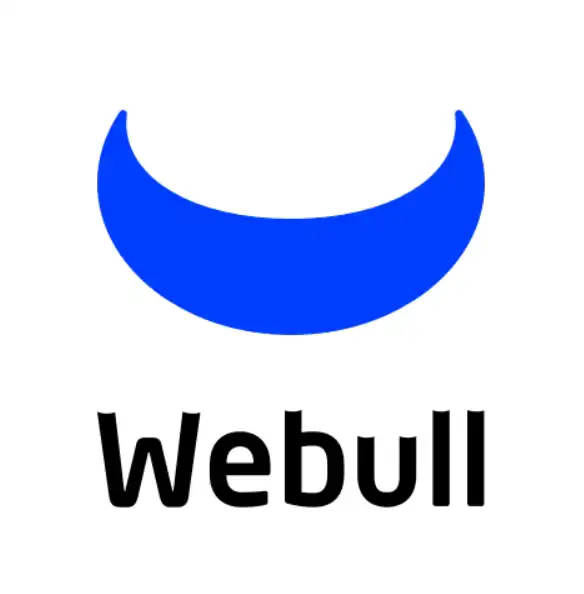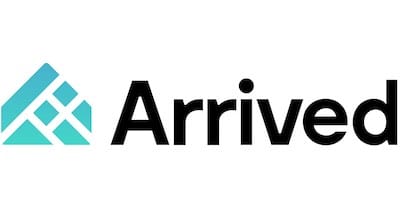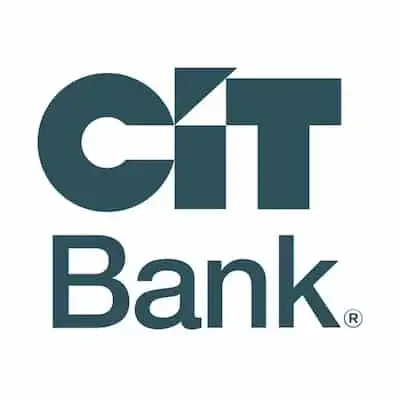Gone are the days of earning a salary from one job and relying on it until retirement. In fact, more and more people are seeking out alternative income sources in order to supplement their full-time careers. If the economy has taught us anything lately, it’s that nothing is guaranteed during a recession or economic downturn.
One of the best ways to earn more is by participating in cash flow investments. This type of investment seeks to bring you a sum of money on a term basis in order to add to your assets. There are many types of cash flow investments out there, many of which we’ll discuss in this article.
The bottom line is that investing in your future and establishing a cash flow investment are within your reach. There are at least a handful of cash flow opportunities you can invest in right after you’ve read this article, without having to spend huge amounts of cash or earn a degree. With these cash flow investments, financial security is within reach.
Overview of the Best Investments for Cash Flow
Cash flow investments can be differentiated by how long you can expect to participate in them. The length of the investment can factor into how much cash flow you can expect from that opportunity, but that’s not always the case.
Short Term
Long Term
Unconventional
If you’re looking to invest in bonds and bond funds, you can typically choose between short- and long-term. Both royalties and affiliate marketing can both be considered short- and long-term investments as well. For example, affiliate marketing can earn you extra money as soon as you put it into place, but it may take a longer period of time to truly start earning you a sizable monthly cash flow.
Best Investments for Cash Flow
In no particular order, here is our list of the best investments for cash flow, from real estate investments and money market accounts to royalties and affiliate marketing.
Dividend Stocks
One of the first types of cash flow investments that might come to mind is dividend stocks. These stocks pay out on a regular basis and provide reliable and consistent returns. In terms of appreciating assets, dividend stocks can be a risky investment, but they’re a great addition to your portfolio.
If you are looking at dividend stocks, try to invest in those that have a yield higher than 1%. These types of dividend stocks have high price stability and, unlike bonds, should increase over time to provide higher rates of cash flow. Anyone can buy dividend stocks by using apps like Robinhood or other leading brokerages.
|
Primary Rating:
4.5
|
Primary Rating:
5.0
|
Primary Rating:
4.5
|
Certificates of Deposit
If investing for the short term is more what you’re looking for, certificates of deposits, or CDs, are worth looking into. These certificates are very similar to a savings account that you store your money in for a period of time, but they are one of the safer investments you can make.
Most CDs earn a 1-2% rate of return, but there are no minimums to invest. You will end up paying a penalty fee if you remove CD funds earlier than the set term, so compare interest rates before you commit to taking advantage of these stable and consistent cash flow investments.
Money Market Accounts
Speaking of savings accounts, money market accounts are also low-risk and look similar to a savings account. You will need a higher deposit, but your interest rate is higher, giving you a better return on your investment.
Unlike CDs, you can withdraw money from money market accounts, but you do have to work within a limit. Money market accounts are also FDIC-protected, so you don’t have to worry about losing your investment if the bank goes under.
Real Estate
There are many investors that will say real estate is a high-risk opportunity, especially given the history of the housing market. However, you can still invest in real estate in minor amounts and enjoy tax benefits at the same time. After all, we all still need somewhere to live.
Real estate investments are best for long-term investors who want to earn extra income from rental properties, fix-and-flips, etc. Most real estate investments are illiquid in the sense that they’re not something you can offload like a stock. Plus, renting a property takes time, from performing maintenance to finding tenants and/or hiring a property management company.
Real Estate Investment Trusts (REITs)
If the real estate market scares you but you’re still wanting to invest in the real estate world, real estate investment trusts (REITs) might be the alternative you’re looking for. REITs work like a mutual fund in that you pool your money with other investors to buy properties that a single investor typically can’t manage.
REITs are public or private, depending on how they’re controlled. Investors receive dividends from net income from the property, but they also benefit from the trust selling the property in terms of capital appreciation.
Peer-to-Peer Loans
You’ve heard of robbing Peter to pay Paul, but what about funding both of them? Peer-to-peer loans allow you to do just that, offering loan services to individuals who may not have otherwise qualified for a traditional loan. Returns can be anywhere from 5-7% based on a number of factors, but the bottom line is that you’ll get a higher rate of return because you are a direct lender.
Most peer-to-peer loans are short-term, and you don’t need a lot of capital to get started. You can also buy slices of loans that are called notes for as low as $25. LendingClub and Prosper are two common platforms you can use to find peer-to-peer loans you want to invest in.
Real Estate Crowdfunding
Arrived is a great real estate investing platform to use if you want a low minimum investment threshold for real estate investing. You can get started with as little as $100!
It’s an especially useful tool to use if you want to diversify your portfolio and have someone else handle all the work that comes with being a landlord. All you really need to do is sign up, and collect your rental income each quarter.
The management fee is a modest 1% asset management fee, but it's worth it considering how easy it is to get started. You can sign up for free and view the different properties available to invest in. Buy shares of properties, earn rental income and appreciation — let Arrived take care of the rest.
Then you can literally beat the stock market year after year and start making money in your sleep. If you want to earn the big bucks then you can learn how to get started by getting more information from Arrived here.
Arrived lets you invest in residential real estate and vacation rentals with only $100. It's an excellent option for anyone looking to earn passive income with rental units. And the platform is available to non-accredited investors.
Bonds
Retirement-age investors should definitely include bonds in their investment portfolio. As classic an investment as they may be, they do provide regular payments until they reach maturity. There are platforms where you can sell your bonds, too.
Most of the bonds available are from the government, but you can find bonds from corporations as well. These investments are typically low risk and the rate of return is specified in terms of interest. However, you should be aware that the returns on bonds do tend to go down when the Federal Reserve increases interest rates.
Mutual Funds
For those investors looking to add diversification to their portfolio, mutual funds can provide a worthy opportunity for a low-risk, high-potential investment. Mutual funds typically consist of a pool of stocks managed by professionals that invest in various opportunities with investors’ funds. The rate of return on mutual funds is market dependent.
Retirement Accounts
Some investors consider retirement accounts to be a boring investment, but they can be a great way to plan for the future and set yourself up for success later in life. As expected, retirement accounts are a long-term investment, but you will be able to take advantage of tax benefits as you save.
Most investors choose a Roth IRA account for their retirement since you can typically earn 7-10% in returns. However, the rate at which your returns grow depends on what type of investments you make. There are annual limits to contributing to your retirement account, but this investment strategy makes the most of compounding to pad your retirement funds.
Exchange-Traded Funds (ETFs)
Let’s say you liked the idea of a mutual fund, but you wanted the flexibility of a dividend stock. In that case, an exchange-traded fund, or ETF, brings the best of both worlds to the table, providing you with a solid rate of return.
ETFs are good for beginner investors, especially because you don't need to worry about what stocks you’ll invest in. Typically, the ETF you choose invests in a particular stock of choice and you earn dividends from the venture. These types of cash flow investments offer high liquidity. You can learn more about ETFs in our article about VUG vs. QQQ Growth ETFs.
High-Yield Savings Accounts
Savings accounts aren’t necessarily an exciting cash flow investment, but they can be a great way to build wealth over time. You won’t have any risk of losing money, since your account is typically FDIC-insured for up to $250,000. Many high-yield savings accounts have consistent terms that are low risk and best for those nearing retirement.
There are many 5% high-yield savings accounts to choose from, but you should compare rates before you make a decision. Even if you don’t want to invest in any other opportunity, high-yield savings accounts should be part of your overall savings strategy.
Royalties
Investing in today’s world looks a little different than it used to, especially when it comes to royalties. This is an unconventional type of investment that isn’t always one of the top opportunities investors mention, but provides a consistent income nonetheless.
Investing in royalties means you’re investing in licensing arrangements for videos, music, oil and gas, mineral rights, etc. Every opportunity is different. For example, you might earn a royalty on a product you invested in, which is a common arrangement on TV shows like Shark Tank.
Bond Funds
Unlike bonds, bond funds typically have a shorter maturity period, of about 10 years or less. These types of cash flow investments are best for those looking for a steady income at a low risk, but want a better rate of return than treasury bonds.
Unlike bonds, which respond to the interest changes made by the Federal Reserve, bond funds are more stable, even if they do include a minor amount of risk.
Annuities
Earning income after retirement can be tricky, but not if you’ve got annuities in your portfolio. These cash flow investments pay out a certain amount each month, but you will need to wait a few years before you’ll start receiving a regular cash flow amount.
In contrast, there are certain immediate annuities that pay out in short notice. These types of cash flow investments are often complex, so they’re not recommended for beginner investors or those looking for a short-term return.
Affiliate Marketing
Like royalties, affiliate marketing has gained a lot of ground as a viable cash flow investment within the past few years. Affiliate marketers invest their time and creativity to market products and services of many different companies, most of the time on one or more social media platforms.
Affiliate marketing is something practically anyone can do, even if you have a small social media following. Advice accounts and those that provide tutorials tend to achieve higher visibility ratings, which is key to making a reliable income with affiliate marketing. In fact, some young investors live off affiliate marketing, rather than clocking in and out at a traditional 9-5 job.
Summary of the Best Investments for Cash Flow
We categorized each different type of cash flow investment above based on how long you should expect to spend participating in. However, you can also think of an investment in terms of how high or low risk it is, as described in the table below.
Low Risk
- Certificate of deposit
- Money market accounts
- Real estate
- Bonds
- High-yield savings accounts
- Bond funds Annuity
Moderate Risk
- Affiliate marketing
- Royalties
- Retirement accounts
- Mutual funds
- Real estate crowdfunding Dividend-paying stocks
High Risk
- REITs
- Peer-to-peer loans ETFs
Risk loosely translates to rate of return, although market conditions directly impact this relationship as well. The best stock portfolios are those that strike a balance between high- and low-risk investments, and it pays to take the same approach when it comes to cash flows.
FAQs
Which type of investments generates the highest cash flow?
Investments vary in terms of how much cash flow they can generate, so there’s no real definitive answer to this question. For example, real estate investments can return a negative cash flow or an extremely positive one, depending on the area and when and how you invested. This might be a higher or lower cash flow than high-yield savings accounts, in comparison.
Generally speaking, low-risk investments tend to generate a low cash flow, while high-risk are more lucrative. That being said, there’s a certain strategy that goes into how you play your cards when you invest. Putting all your savings into a high-risk opportunity should not be confused with a guaranteed high rate of return.
What are good investments for beginners?
Beginners can start earning extra cash flow in a number of ways. For example, affiliate marketing is easy to do and doesn’t require any cost. If you have a large social media following, you may already be set up to jump right into affiliate marketing.
Other cash flow investment opportunities for beginners include high-yield savings accounts, retirement plans, and certificates of deposit.
Establish Your Cash Flow
Investors across the globe argue amongst each other as to which cash flow investments are the best, but one thing remains the same: if you don’t start a cash flow opportunity, you won’t receive any income from that source.
We hope you’ve found this article on the best cash flow investments useful. Making money to supplement your income with cash flow investments is possible and you can continue to reap the benefits the more you invest. The best investments are those that don’t cost you anything, but can truly make good on the time you spend on them.
Arrived lets you invest in residential real estate and vacation rentals with only $100. It's an excellent option for anyone looking to earn passive income with rental units. And the platform is available to non-accredited investors.




